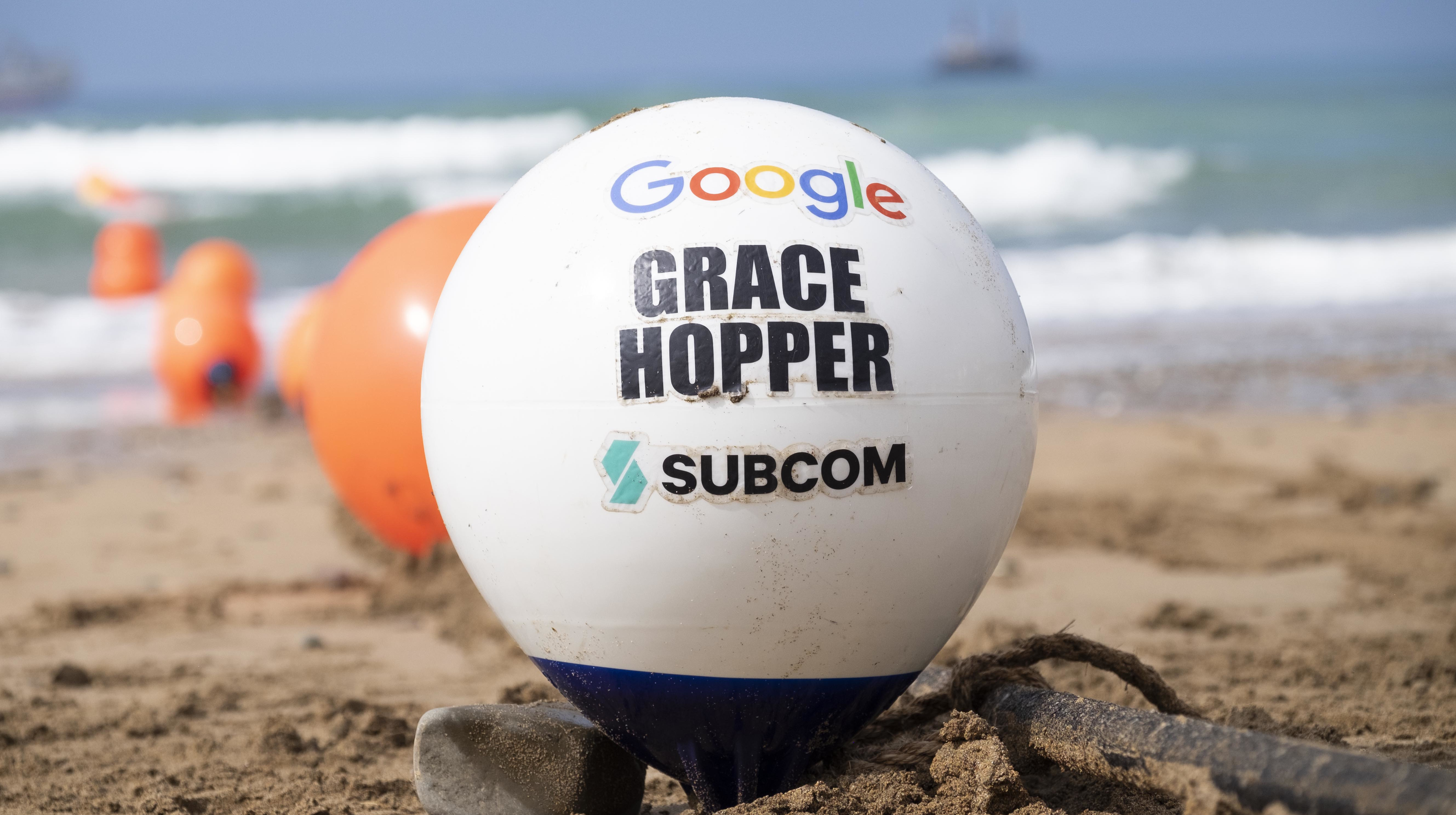Google's new submarine web cable will carry millions of 4K videos simultaneously
The Grace Hopper cable will deliver record-breaking capacity

Google has revealed its latest submarine web cable will soon be open for business, having docked successfully in the UK.
Announced in July 2020, the Grace Hopper cable (named after the creator of COBOL) connects the UK, US and Spain and will provide additional capacity and resilience across these communications corridors.
As per a Google blog post, the cable will be the first to connect the UK and US since 2003, and will play a major role in supporting collaboration between businesses across the Atlantic.
- We've built a list of the best web hosting services right now
- Check out our list of the best shared web hosting services
- Here's our list of the best dedicated hosting providers out there
“Many people around the world use Google products every day to stay in touch with friends and family, travel from point A to point B, find new customers or export products to new markets,” noted Google.
“As our first Google-funded cable to the UK, Grace Bopper is part of our ongoing investment in the country, supporting users who rely on our products and customers using our tools to grow their business.”
The project also marks Google’s first investment in a submarine cable docking in Spain and will serve to knit the Google Cloud region in Madrid with the company’s wider global infrastructure.
Record-breaking capacity
Courtesy of a whopping 16 fiber pairs, the Grace Hopper Cable will boast a record-breaking capacity of 340 Tbps, which Google says is equivalent to roughly 17.5 million people streaming 4K videos at once. The current record is held by Google’s Dunant cable, which delivers 250 Tbps.
Are you a pro? Subscribe to our newsletter
Sign up to the TechRadar Pro newsletter to get all the top news, opinion, features and guidance your business needs to succeed!
The new cable also benefits from a new “fibre switching” technique that is said to minimize the likelihood of blackouts.
“Grace Hopper will use this new switching architecture to provide optimum levels of network flexibility and resilience to adjust to unforeseen failures or traffic patterns. This multi-directional switching architecture is a significant breakthrough for uncertain times,” explained Jayne Stowell, who works on the project at Google Cloud.
According to Stowell, the new cable will carry traffic “quickly and securely” across the Atlantic Ocean, propping up popular Google services, like Gmail and Meet.
Over the last year, Google has announced a slew of new undersea web cables as it looks to meet global demand, including Firmina, Dunant, Apricot, Blue and Raman. In total, the company now holds at least a share in nineteen different cable networks.
- Here's our list of the best cloud computing services around

Joel Khalili is the News and Features Editor at TechRadar Pro, covering cybersecurity, data privacy, cloud, AI, blockchain, internet infrastructure, 5G, data storage and computing. He's responsible for curating our news content, as well as commissioning and producing features on the technologies that are transforming the way the world does business.